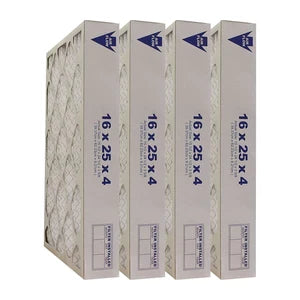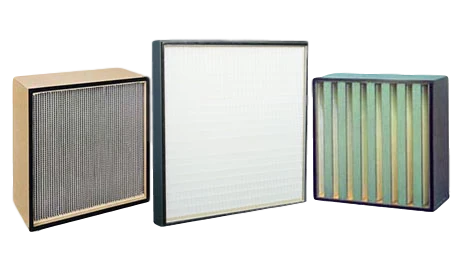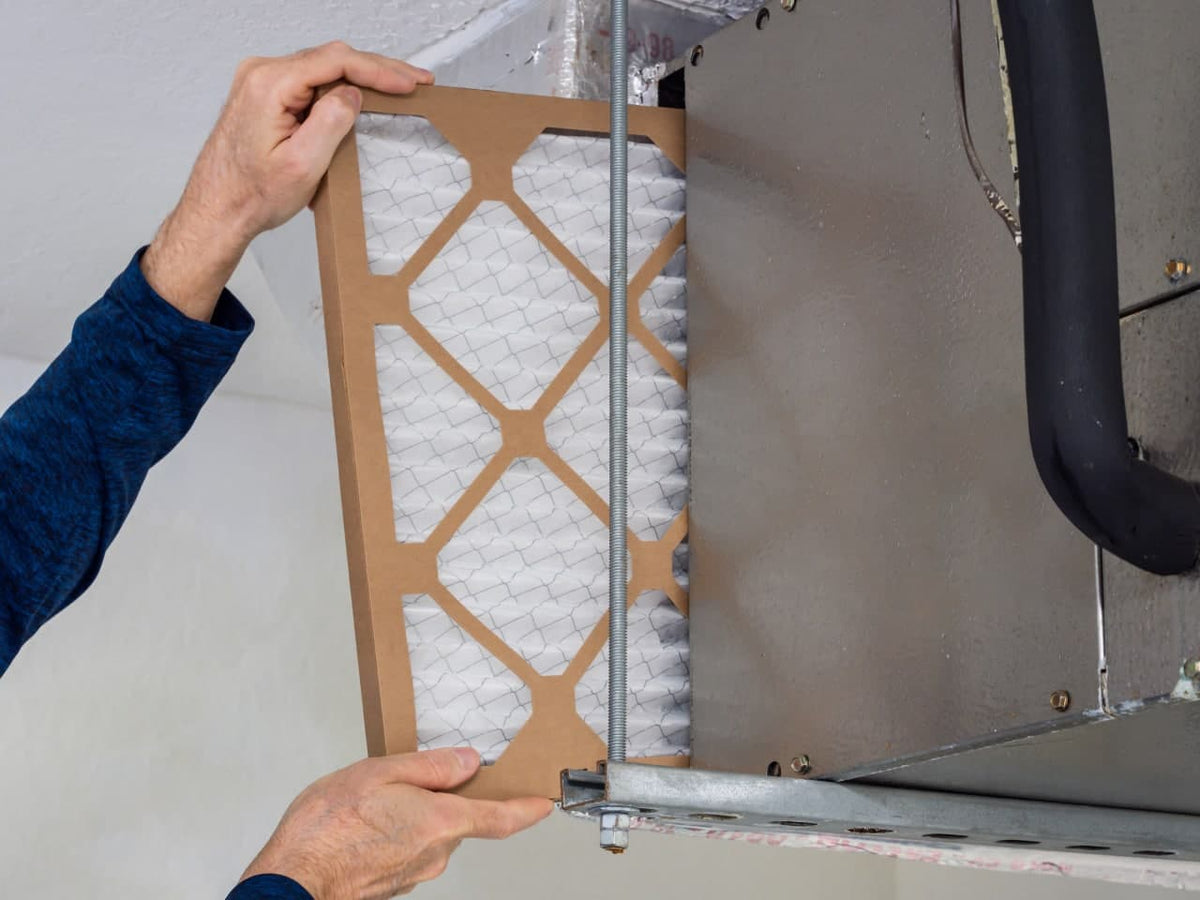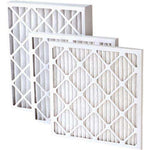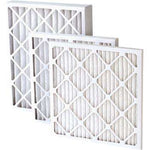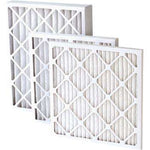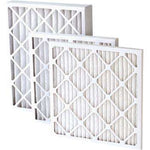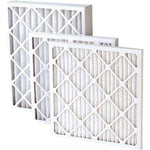You have no items in your shopping cart.
Air filters are an important part of your home's HVAC system and can help improve your indoor air quality. In fact, according to the EPA, a clogged AC filter "can cause airflow restriction and increased pressure drop across the evaporator coil." This can lead to higher energy bills and even damage the system over time—so it's important to replace or clean yours regularly!
Air Filter quality and efficiency
As with all things, you get what you pay for. The higher the quality of an air filter, the better it will perform and last. A good filter will have a high MERV rating (means efficiency rating value) and have been certified. You can also tell if an air filter is good by looking at its packaging or reading reviews online - if it doesn't say anything about being certified by one of these organizations then it likely isn't very good quality!
Another thing to consider when purchasing an air filter is whether or not replacement parts are available should anything happen to your current unit down the road..
Air Filter Cost
The cost of filters can vary greatly depending on the brand. Some brands are more expensive than others, while others are less expensive. However, it is important to remember that quality is often more important than cost when choosing an air filter. While some people may be tempted to choose a cheaper filter because they think it will save them money in the long run (and perhaps even do so), this isn't always the case and could even lead to problems down the road if you opt for a subpar product over something higher quality but more expensive at first glance.
When comparing prices between different types of filters--HEPA vs electrostatic vs foam etc.--you should look into what each type does and how effective each one would be at cleaning your home's air before making any decisions about which one will work best for you personally based on things like budget constraints or allergies/asthma triggers etc..
Furnace Filter's Replacement frequency
Replacement frequency depends on three things: how much dust and dirt is in your home, the size of your home and the type of air filter you have like 1 inch furnace filter, 4 inch furnace filter or 5 inch furnace filter.
For example, if you live in a dusty area with lots of construction going on (e.g., near an airport or highway), then it's likely that more dust will be entering into your home than someone who lives in a less populated area with less traffic congestion. Similarly, if you have an older house with more cracks around windows and doors through which dust can enter--or if there are pets present who shed fur--then this could also contribute to higher levels of particulates getting into your indoor air quality system over time as compared to someone whose house was built recently with more modern insulation techniques designed specifically for reducing outside contaminants from entering through cracks around windows/doors or vents.
Where to buy Air Filters?
If you're going to spend money on a quality air filter, it's important to buy from a reputable company. Look for a brand that has been around for awhile and has been well-reviewed by other customers.
If you're buying online, be sure to check out the return policy and warranty details before making your purchase--you want to know exactly how long you have if something goes wrong or if there are any issues with the product.
The brand of your air filter does matter.
-
Quality of Materials: Established and reputable air filter brands are more likely to use higher-quality materials in their filters. These materials can include finer filter media that are more effective at capturing a wide range of airborne particles, including dust, pollen, pet dander, and allergens.
-
Filtration Efficiency: Different brands offer filters with varying levels of filtration efficiency. A well-known brand is more likely to provide accurate information about the filter's MERV (Minimum Efficiency Reporting Value) rating or other relevant filtration standards. This information helps you choose a filter that meets your specific air quality needs.
-
Consistency and Reliability: United Filter Company's track record of producing consistent and reliable products means you can trust that the furnace filter you purchase will perform as advertised and provide the expected level of filtration over its lifespan.
-
Durability and Longevity: Higher-quality filters from reputable brands are likely to be more durable and have a longer lifespan. This can translate to fewer filter replacements and greater overall value for your investment.
-
Innovation and Research: Well-known brands often invest in research and development to improve the design and effectiveness of their air filters. This can lead to innovations that provide better air filtration and improved indoor air quality.
-
Customer Support: Being a reputed brand in Canada, we offer better customer support, including assistance with choosing the right filter for your needs, answering questions about product specifications, and addressing any concerns you may have.
-
Compatibility and Fit: United Filter has a wider range of filter sizes and types, making it easier to find a filter that fits your HVAC system perfectly. A well-fitting filter ensures optimal airflow and filtration performance.
-
Reduced Risk of Counterfeit Products: Recognisable brands are less likely to have issues with counterfeit filters, which can be ineffective or even harmful to your HVAC system. Purchasing from reputable sources reduces the risk of buying counterfeit or substandard products.
Conclusion
When choosing an air filter, it's a good idea to do some research, read reviews, and consider recommendations from HVAC professionals. While it's possible to find effective filters from brands like United Filter, sticking with reputable and established brands can provide greater peace of mind when it comes to air quality, filtration efficiency, and overall performance.
Air filters are an important part of your home's HVAC system and can help improve your indoor air quality. In fact, according to the EPA, a clogged AC filter "can cause airflow restriction and increased pressure drop across the evaporator coil." This can lead to higher energy bills and even damage the system over time—so it's important to replace or clean yours regularly!
Air Filter quality and efficiency
As with all things, you get what you pay for. The higher the quality of an air filter, the better it will perform and last. A good filter will have a high MERV rating (means efficiency rating value) and have been certified. You can also tell if an air filter is good by looking at its packaging or reading reviews online - if it doesn't say anything about being certified by one of these organizations then it likely isn't very good quality!
Another thing to consider when purchasing an air filter is whether or not replacement parts are available should anything happen to your current unit down the road..
Air Filter Cost
The cost of filters can vary greatly depending on the brand. Some brands are more expensive than others, while others are less expensive. However, it is important to remember that quality is often more important than cost when choosing an air filter. While some people may be tempted to choose a cheaper filter because they think it will save them money in the long run (and perhaps even do so), this isn't always the case and could even lead to problems down the road if you opt for a subpar product over something higher quality but more expensive at first glance.
When comparing prices between different types of filters--HEPA vs electrostatic vs foam etc.--you should look into what each type does and how effective each one would be at cleaning your home's air before making any decisions about which one will work best for you personally based on things like budget constraints or allergies/asthma triggers etc..
Furnace Filter's Replacement frequency
Replacement frequency depends on three things: how much dust and dirt is in your home, the size of your home and the type of air filter you have like 1 inch furnace filter, 4 inch furnace filter or 5 inch furnace filter.
For example, if you live in a dusty area with lots of construction going on (e.g., near an airport or highway), then it's likely that more dust will be entering into your home than someone who lives in a less populated area with less traffic congestion. Similarly, if you have an older house with more cracks around windows and doors through which dust can enter--or if there are pets present who shed fur--then this could also contribute to higher levels of particulates getting into your indoor air quality system over time as compared to someone whose house was built recently with more modern insulation techniques designed specifically for reducing outside contaminants from entering through cracks around windows/doors or vents.
Where to buy Air Filters?
If you're going to spend money on a quality air filter, it's important to buy from a reputable company. Look for a brand that has been around for awhile and has been well-reviewed by other customers.
If you're buying online, be sure to check out the return policy and warranty details before making your purchase--you want to know exactly how long you have if something goes wrong or if there are any issues with the product.
The brand of your air filter does matter.
-
Quality of Materials: Established and reputable air filter brands are more likely to use higher-quality materials in their filters. These materials can include finer filter media that are more effective at capturing a wide range of airborne particles, including dust, pollen, pet dander, and allergens.
-
Filtration Efficiency: Different brands offer filters with varying levels of filtration efficiency. A well-known brand is more likely to provide accurate information about the filter's MERV (Minimum Efficiency Reporting Value) rating or other relevant filtration standards. This information helps you choose a filter that meets your specific air quality needs.
-
Consistency and Reliability: United Filter Company's track record of producing consistent and reliable products means you can trust that the furnace filter you purchase will perform as advertised and provide the expected level of filtration over its lifespan.
-
Durability and Longevity: Higher-quality filters from reputable brands are likely to be more durable and have a longer lifespan. This can translate to fewer filter replacements and greater overall value for your investment.
-
Innovation and Research: Well-known brands often invest in research and development to improve the design and effectiveness of their air filters. This can lead to innovations that provide better air filtration and improved indoor air quality.
-
Customer Support: Being a reputed brand in Canada, we offer better customer support, including assistance with choosing the right filter for your needs, answering questions about product specifications, and addressing any concerns you may have.
-
Compatibility and Fit: United Filter has a wider range of filter sizes and types, making it easier to find a filter that fits your HVAC system perfectly. A well-fitting filter ensures optimal airflow and filtration performance.
-
Reduced Risk of Counterfeit Products: Recognisable brands are less likely to have issues with counterfeit filters, which can be ineffective or even harmful to your HVAC system. Purchasing from reputable sources reduces the risk of buying counterfeit or substandard products.
Conclusion
When choosing an air filter, it's a good idea to do some research, read reviews, and consider recommendations from HVAC professionals. While it's possible to find effective filters from brands like United Filter, sticking with reputable and established brands can provide greater peace of mind when it comes to air quality, filtration efficiency, and overall performance.
